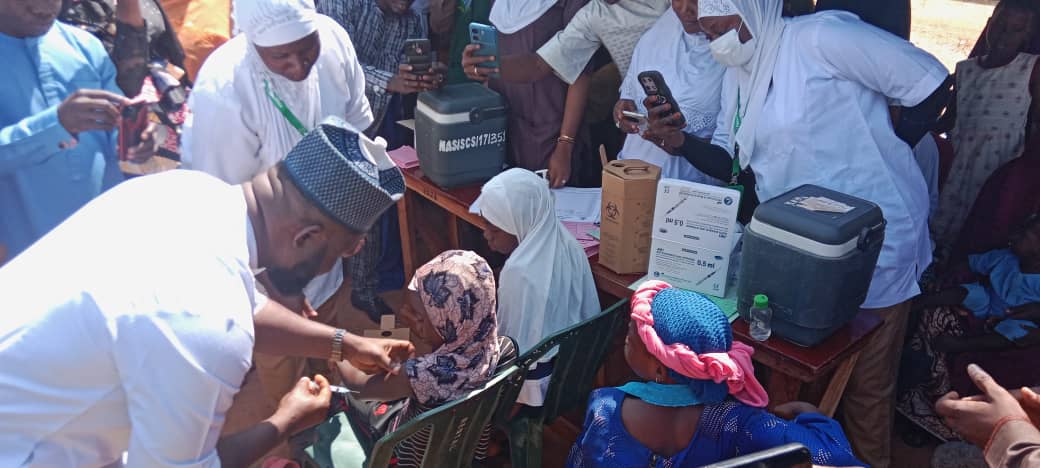To tackle Cervical Cancer, FG commences HPV vaccination in N’Central, Nigeria

HPV vaccination
To tackle Cervical Cancer, FG commences HPV vaccination in N’Central, Nigeria.
To tackle the menace of mortality rate of women in the North Central Zeo-political zone of the country, the Federal Government of Nigeria has commenced a vaccination exercise of young girls between the ages of 9 and 14 years in secondary schools across the region against the Human Papilloma Virus, which is responsible for cervical cancer in women.
Human Papilloma Virus, which has led to the untimely death of many Nigerian women, is the most common viral infection of the reproductive tract, mainly transmitted through sexual contact, and most people become infected with HPV shortly after the onset of sexual activity.
Speaking at the HPV regional vaccination flag-off exercise in Lafia, the Nasarawa State capital, on Friday, the Director General of the National Institute for Cancer Research and Treatment, Prof. Usman Malami Aliyu, said the aim of the exercise was to completely eradicate cervical cancer in the North Central region and the country at large.
The DG who was represented by the Senior Scientific Officer of NICRAT, Musa Mutiu-Terere, expressed gratitude to President Bola Tinubu for his efforts to put an end to the mortality rate of young girls and women caused by HPV in the region.
He said, “This event is necessary considering the devastating effects of HPV in the lives of women. This also shows the commitment of the Federal Government through the Federal Ministry of Health and Social Welfare to halt cervical cancer, thereby improving the health status of our women in particular and Nigerians in general.
“The decision of the NICRAT to target secondary schools for implementation of this program is deliberate, considering the number of the beneficiaries involved. To achieve maximum outcome, we have, therefore, resolved to take the vaccination to all secondary schools across the six geopolitical zones in Nigeria in the first phase.”
While noting that arrangements had been concluded to escalate the vaccination exercise to religious centres and marketplaces in the coming weeks, the NICRAT Director-General commended the National Primary Healthcare Development Agency for its massive support thus far in ensuring the success of the vaccination program in the country.
“Therefore, I urge our daughters in various schools to present themselves for vaccination in order to prevent themselves from cervical cancer and also to justify the huge investment that the government is making to safeguard their health. We also expect schools to make good arrangements and ensure that every female student within the target age bracket is vaccinated,” he added.
On his part, the executive secretary of the Nasarawa State Primary Healthcare Development Agency, Dr. Usman Iskilu Saleh, urged all young females in the state between the ages of 9 and 14 years to take the vaccination exercise very seriously, noting that it is a life-saving opportunity that would guarantee good health for them both now and in the future.
While assuring that the vaccine is safe for use, Saleh affirmed that when administered, the vaccine would help to prevent young females from the agony and suffering that many women had experienced as a result of cervical cancer in the future.
Earlier in her speech, a representative of the World Health Organisation, Bilqisu Hussaini, while thanking NICRAT for bringing the HPV vaccination program to schools in the region, urged parents and guardians to ensure that their female children are allowed to participate in the exercise to guarantee their health in the future.
Our correspondent reports that other stakeholders at the HPV vaccination flag-off exercise, including the Director of Nutrition, Nasarawa State Ministry of Education, Jessica Philip; Acting State Coordinator, National Primary Healthcare Development Agency, Beatrice Osi; Representative of the Health Secretary, Lafia LGA, Hauwa Kaura; among others, promised to give the needed cooperation to NICRAT to ensure the success of the vaccination program.
